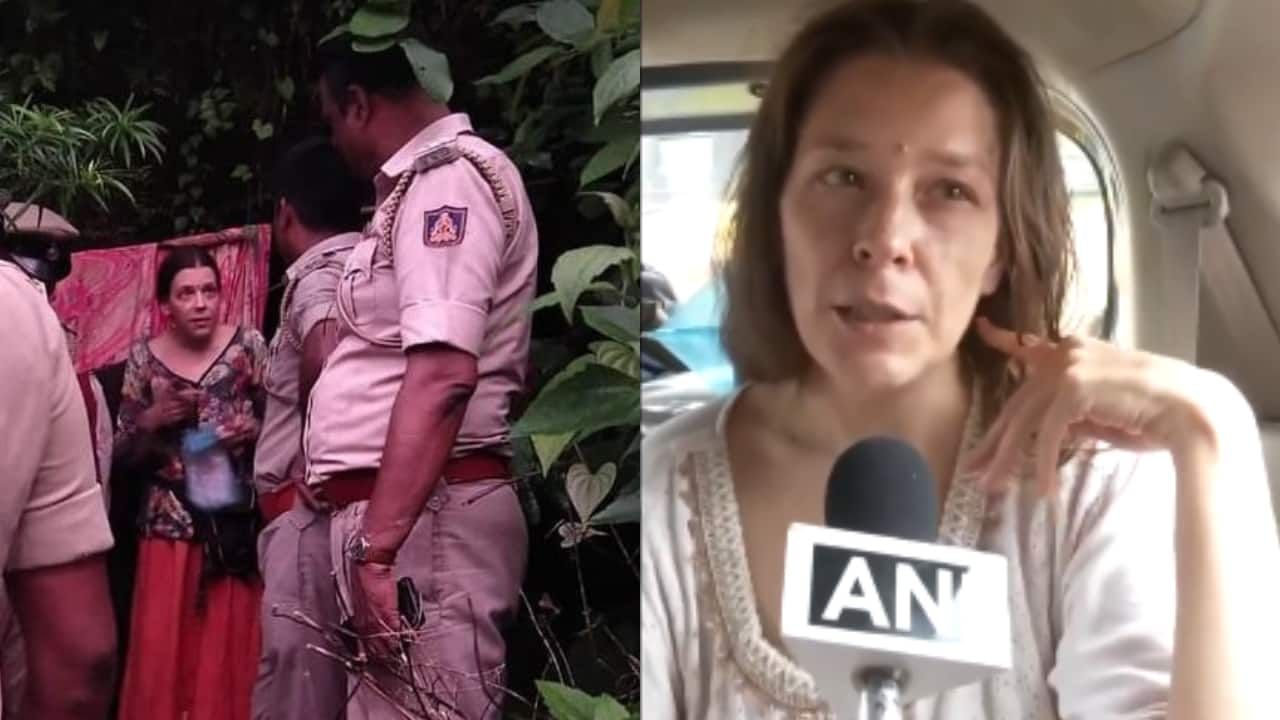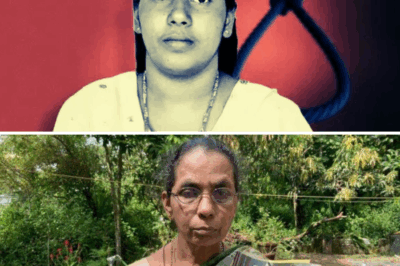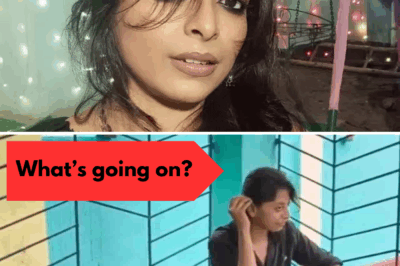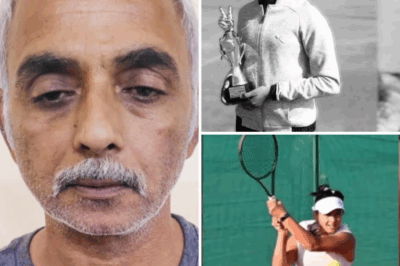Nestled in the dense forests of Karnataka lies a story so shocking it feels like something out of a movie. Imagine finding a foreign woman living in a secluded cave alongside her two young daughters—no electricity, no internet, no social contact. In India. For years. It almost seems unbelievable, but the tale of Russian national Nina Kutina (now known as Mohini or Mohi) has stunned both the public and the authorities. Found alone with her children in a remote grotto atop the famous Ramti Hills near Gokarna, her story raises profound questions about law, motherhood, and spiritual freedom.
When local villagers first spotted Nina in the hills near Gokarna, she was quiet, always acting alone, rarely speaking to anyone except when purchasing supplies, and immediately returning to the forest. There were no identity cards, no valid visas, and no clear reason for why she chose to stay. Her elusive presence and her secluded cave—adorned with prayer items and simple furnishings—left many questioning who she really was. This was no typical traveler; she had spent years living off-grid, raising her daughters completely outside modern society.
When authorities finally made contact, Nina told them she was a spiritual seeker, a “sadhvi” who wanted to escape the chaos of city life for the peace of nature. She described a simple routine: drawing water from a nearby spring each morning, shaping clay pots, foraging for food among the surrounding shrubs and trees, and cooking with a gas cylinder. Education, entertainment, or toy stores were replaced with yoga, meditation and wandering among forests and streams.
She declared that her goal was to provide her daughters with a natural childhood—free from screens, free from crowds, truly alive. To play in mud, bathe in mountain springs, learn yoga under open skies. Remarkably, doctors later confirmed that both girls—aged six and four—were physically healthy, showing no signs of disease, malnutrition, or fear despite their unusual upbringing. They had no vaccinations, no birth certificates, no enrollment in school. In Nina’s view, nature was the best teacher.
However, reality struck in the form of legal obligations. Investigations proved her visa—a business visa issued in 2016—had expired in April 2017. Rather than returning, she left for Nepal to get an exit permit, then slipped back into India in September 2018 with no new visa. From then on, she vanished into Gokarna’s forests, living illegally until tip-offs from villagers triggered police action.
When officials arrived, they discovered a cave transformed into a makeshift home: a small shivling shrine spotlit by her daily rituals, mud toys, jars of essentials, and her daughters’ laughing presence. Despite initial concerns over her mental well-being, it became clear Nina was lucid and purposeful. Her daughters greeted the officers joyfully, hugging them and chatting in the local language. The police were astonished: the children weren’t traumatized—they were energized, at ease.
The discovery triggered swift consequences. Authorities relocated the children to a care center and subjected them to full medical checks. While physically healthy, medical records confirmed that the girls had never received vaccinations. Doctors also feared they were socially isolated—unexposed to school, ongoing healthcare, or relationship-building beyond their mother.
Nina, meanwhile, was taken for mental evaluation as part of ongoing procedures. Officials faced a delicate challenge: though no physical harm had come to the children, the potential danger of living in a cave—snakes, wild animals, isolation—was very real.
Now, a tug-of-war is unfolding between sentiment and legality. Nina has insisted she will never leave India. She has no passport, no money to book flights, and little means to resolve her immigration status. She claims her adopted identity and spiritual purpose make India her real home. Foreigners’ Registration Office (FRRO) has lodged charges against her for overstaying, with deportation proceedings under way. Meanwhile, child agencies and government bodies must decide whether the girls should remain under Indian care or return with their mother—possibly stranded in legal limbo.
Russia’s embassy has been contacted—but assistance has been slow. With no active passport, Nina’s repatriation could take months. Meanwhile, the girls remain in temporary care with no school enrollment or birth records.
At the core of this incident lies a deeper, more sensitive question: can the pursuit of spiritual freedom excuse flouting laws designed to protect society and children? Nina’s supporters argue that she harmed no one; in her secluded life, she raised two well-adjusted and healthy girls. Critics counter that raising children far from health, education, and social support is neglectful—even dangerous. What if a full-blown illness had struck? What about unforeseen accidents in those woods?
This situation pushes us to examine the tension between personal belief and communal responsibility. Nina, a single mother, tuned herself and her daughters to the rhythms of nature. But her path was entirely undocumented. Did her rejection of modern society come at the expense of her children’s future opportunities and rights?
For Nina and her daughters, the way forward is uncertain. Deportation could strip the girls of an early Indian experience—but staying without status simply isn’t sustainable long-term. India’s child welfare system may choose to place them in local foster care or rehabilitation programs, while immigration channels negotiate whether Nina will be allowed home under humanitarian grounds—or returned to Russia.
This extraordinary case has captivated national attention, prompting public debate and media coverage. Human rights groups warn against stigmatizing mothers who choose alternative lifestyles. Child welfare advocates stress the duty to ensure kids grow up with basic protections. Meanwhile, legal experts sketch out the path forward—emergency aid, visa resolution, mental health support.

Nina Kutina’s story is powerful and compelling. It poses tough questions: How far can a parent go in choosing freedom over conformity? Who defines what a ‘right upbringing’ looks like? At the intersection of immigration law, mental health, child welfare, and spiritual seeking, Nina’s case will likely establish legal precedents and ignite policy discussion.
One thing is certain: this is more than a sensational story. It forces society to ask whether spiritual conviction justifies breaking established rules. It urges us to consider children’s rights even within well-intentioned, uncompromising lifestyles. Finally, it highlights that not every unconventional choice is foolish—but not every reason is enough to sidestep societal safeguards.
In the coming months, many eyes will be on whether Nina remains in India or is sent back with her daughters. But beyond that, will Nina’s story spark deeper reflection on what freedom means—and whether it’s ever truly free?
News
A Mother Beyond Blood: Mahhi Vij Opens Up About Raising Khushi and Rajveer Like Her Own Ask ChatGPT
Sometimes, it’s not blood that defines family, but love, compassion, and the willingness to open your heart when it’s least…
The Nurse Facing Execution in Yemen: Nimisha Priya’s Fight for Life and Justice
Nimisha Priya’s story is one that shakes the soul—a tale of courage, desperation, and the harsh realities faced by many…
At 90, Dharmendra Finds Solace in Farming Away From Family: A Look Into His Peaceful Farmhouse Life
At 90 years old, Bollywood legend Dharmendra has chosen a life far removed from the hustle and bustle of Mumbai’s…
New Love or Just Lights, Camera, Action? Rumors Swirl as Shefali Bagga and Faisu Spark Dating Buzz
Social media has been buzzing with speculation, curiosity, and a fair bit of confusion after internet star Faisal Shaikh—better known…
Once a Star, Now Forgotten: Beloved TV Actress Found Disoriented on Streets of Bengal
In a heartbreaking twist of fate, a once-famous face from Bengali television and film has resurfaced under circumstances that have…
A Father’s Confession: The Shocking Truth Behind Radhika Yadav’s Murder
When the news broke that 25-year-old tennis prodigy Radhika Yadav had been killed by her own father, the nation reeled…
End of content
No more pages to load














